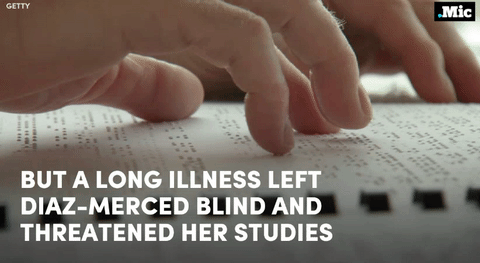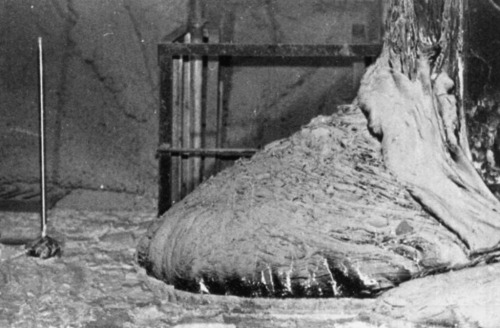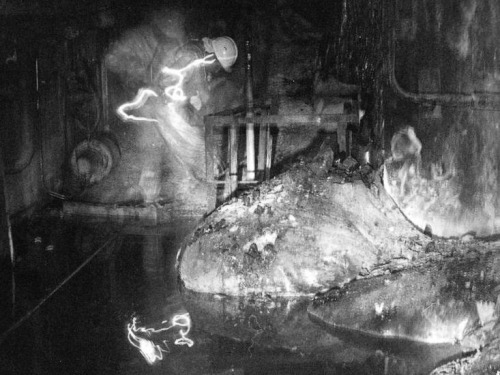Photo: Aftermath Of A Lightning Strike On A Golf Practice Green.

Photo: Aftermath of a lightning strike on a golf practice green.
More Posts from Stubborn-turtle-blog and Others

Whoah

Purchasing power of Europe’s population by 2-digit postcodes, 2016
Dolce Far Niente in Dance Sport - Dance Comp Review
New Post has been published on http://dancecompreview.com/dolce-far-niente-dance-sport/
Dolce Far Niente in Dance Sport
It wasn’t that long ago, when I set up a new training schedule for my partner and I: a plan with all the goals, the training sessions and the topics we wanted to improve. To be honest, I was proud of what I created, because it was so thought through along with a lot of things finally falling into place. Well, at least these were my thoughts – until I brought the plan for discussion to a private lesson with our coach…
I am so glad that I had a professional eye to look over this! When he saw the schedule, he nodded and then said: “Good work so far, but there is one crucial thing missing.” It was like a wakeup call when he told me: “I see everything in this plan, except for the time when you do nothing at all”. That was it! I totally forgot to plan the time for regeneration: one of the key components when it comes to successful training.
In a (dance)-society that is (mostly) driven by the words higher, faster, stronger, we all tend to forget that we only get better in the time we leave our bodies to regenerate. This doesn’t mean of course that we will get better by doing nothing at all. It’s all about doing nothing AFTER we have been working hard. For instance, if we want to make our muscles more powerful, they first have to be exhausted and then they need time to rebuild to an even stronger version. But also our brain needs downtime to process new information. If we learn something new, it’s first saved in the short-term memory and then by processing the information, it will probably be stored in the long-term memory. And as we all know, in sleep our brain consolidates memories best.
Active work demands for active recovery from the physical and mental demands, in order to improve what we are doing. This goes for nearly all aspects in life and also perfectly for dancing. What do I mean by “active recovery”? Here is a quick and personal list:
Giphy
Low Impact Activities
It’s always great to go on a short, easy 15-minute-walk. You can also do a really low impact Yoga session or stretch a little bit. Everything that makes you feel calm, relaxed and refueled. But don’t overdo it! Really give your body a rest!
Giphy
Nutrition
Of course and as always, what you put into your body is crucial. A balanced nutrition is key to your healthy body as well as active recovery. Try to really control the amounts and also the quality of food you are taking in, and your exhausted muscles will thank you. Not to mention, your concentration on the next lesson will be so much better. One really important tip to keep in mind is, that starving your body (in case you are trying to lose weight or you’ve been telling yourself that “you don’t have time to eat”) is not good for your recovery at all. It will stress your system even more and will not let your body improve.
Giphy
Sleep
According to the National Sleep Foundation, Serena Williams, a really successful tennis player, enjoys to go to bed at 7pm in order to get enough sleep. I am not telling you, that this would also work for you, but it is worth giving a thought. I used her example to really emphasize on how important sleeping is, even more for people who are physically active. It doesn’t matter if you consider yourself as a serious athlete/artist, or if you are just in it for fun, but getting the right amount of sleep is decisive to your performance and also to your improvement. Adults between the age 18 and 64 need between 6 and 11 hours, while 7-9 hours of sleep are recommended. I understand that this is a lot of time, but, in my opinion, sleeping is not enough of a priority anymore. Find yourself a sleeping schedule and also keep it on the weekends. Turn off electronics, find your ideal light, sound and temperatures in your bedroom and give your system a chance to reboot.
Giphy
Let go of the “Coulda Woulda Shoulda”
If you now come to the conclusion that some downtime for yourself is what you need, you also have to let go of all the Rumba Walks you could have practiced in that time. Really! Focus on relaxing, recovering and refueling your energy! And, stop overthinking all the things you could’ve, should’ve or would’ve been able to do then. Just enjoy the famous Dolce Far Niente. And, afterwards – Dance on, even better than before!
Author: Sophia Wedel Photography: Maggiore Fotografico Exclusively for Dance Comp Review

This is the Bandigara Escarpment, in Mali. Although the cliffs have been inhabited since the 200s BCE, the present inhabitatants, the Dogon, have been in the rock-perched houses since the 1300s CE. The cliffs offer protection, cooler air, and a safe place to bury the dead. The valley below is prone to flash floods. This means building houses there, and burying dead there, is a risky proposition. The Dogon decided the risk was not worth it, and drove out the former inhabitants of the Bandigara Escarpment. Since the 1300s they have lived at Bandigara in relative peace.
AT-ATs went native...and domestic





Baumraum. Bachstelze. Eberschwang. Austria. photos: Alasdair Jardine
Superhenge?
Last year, an international team of scientists mapping the underground landscape surrounding Stonehenge announced that they had located a massive stone monument that dwarfed its ancient neighbor. When archaeologists started excavating “Superhenge” earlier this month, however, they found something completely different.

Keep reading
So, what I'm getting is metric vs. imperial is a states' right issue
The United States, much to my own surprise, does use the metric system. But only at the Federal level. The Drug Enforcement Administration seizes kilos of cocaine. Soldiers determine distance by “klicks” or kilometers. The Federal Government of the United States officially works in metric. Adoption of the metric system over the imperial system was left up to the individual state governments, who chose freedom (and not having to pay to re-survey all their land).
Huh, it’s almost as if diversity in backgrounds/abilities results in greater diversity of thought











follow @the-future-now


One of the most dangerous pictures ever taken - Elephant’s Foot, Chernobyl. This is a photo of a now dead man next the ‘Elephant’ Foot’ at the Chernobyl power plant.
The image distortions in the photo are created by intense level of radiation almost beyond comprehension. There is no way the person in this photo and the person photographing him could have survived for any more that a few years after being there, even if they quickly ran in, took the photos and ran out again. This photo would be impossible to take today as the rates of radioactive decay are even more extreme now due to a failed military experiment to bomb the reactor core with neuron absorbers. The foot is made up of a small percentage of uranium with the bulk mostly melted sand, concrete and other materials which the molten corium turns into a kind of lava flow. In recent years, it has destroyed a robot which tried to approach it, and the last photos were taken via a mirror mounted to a pole held at the other end of the corridor for a few seconds. It is almost certainly the most dangerous and unstable creation made by humans. These are the effects of exposure: 30 seconds of exposure - dizziness and fatigue a week later 2 minutes of exposure - cells begin to hemorrhage (ruptured blood vessels) 4 minutes - vomiting, diarrhea, and fever 300 seconds - two days to live
-
 captainaceofspades reblogged this · 7 years ago
captainaceofspades reblogged this · 7 years ago -
 specialisa70 liked this · 8 years ago
specialisa70 liked this · 8 years ago -
 6028675309 reblogged this · 8 years ago
6028675309 reblogged this · 8 years ago -
 raddoc5580-blog liked this · 8 years ago
raddoc5580-blog liked this · 8 years ago -
 mrcumwell liked this · 8 years ago
mrcumwell liked this · 8 years ago -
 whistlinskinbaby reblogged this · 8 years ago
whistlinskinbaby reblogged this · 8 years ago -
 whistlinskinbaby liked this · 8 years ago
whistlinskinbaby liked this · 8 years ago -
 limestone1714 liked this · 8 years ago
limestone1714 liked this · 8 years ago -
 radar174 liked this · 8 years ago
radar174 liked this · 8 years ago -
 mrsrachealgold liked this · 8 years ago
mrsrachealgold liked this · 8 years ago -
 bigcolorengineer liked this · 8 years ago
bigcolorengineer liked this · 8 years ago -
 phantomoflibrary liked this · 8 years ago
phantomoflibrary liked this · 8 years ago -
 luckyvoidarts liked this · 8 years ago
luckyvoidarts liked this · 8 years ago -
 frosty299 liked this · 8 years ago
frosty299 liked this · 8 years ago -
 imjust-joshin reblogged this · 8 years ago
imjust-joshin reblogged this · 8 years ago -
 imjust-joshin liked this · 8 years ago
imjust-joshin liked this · 8 years ago -
 cherrybomb reblogged this · 8 years ago
cherrybomb reblogged this · 8 years ago -
 cherrybomb liked this · 8 years ago
cherrybomb liked this · 8 years ago -
 delibalinfazlasi-blog liked this · 8 years ago
delibalinfazlasi-blog liked this · 8 years ago -
 midiirl liked this · 8 years ago
midiirl liked this · 8 years ago -
 croccchronicless liked this · 8 years ago
croccchronicless liked this · 8 years ago -
 d0td0td0td0t liked this · 8 years ago
d0td0td0td0t liked this · 8 years ago -
 tamyale liked this · 8 years ago
tamyale liked this · 8 years ago -
 mtynest liked this · 8 years ago
mtynest liked this · 8 years ago -
 serpears liked this · 8 years ago
serpears liked this · 8 years ago -
 valeika liked this · 8 years ago
valeika liked this · 8 years ago -
 camerabehindthecamerabehindthe reblogged this · 8 years ago
camerabehindthecamerabehindthe reblogged this · 8 years ago -
 leighwavve reblogged this · 8 years ago
leighwavve reblogged this · 8 years ago -
 ohjakeshere reblogged this · 8 years ago
ohjakeshere reblogged this · 8 years ago -
 apope14 reblogged this · 8 years ago
apope14 reblogged this · 8 years ago -
 apope14 liked this · 8 years ago
apope14 liked this · 8 years ago -
 badwolff7 reblogged this · 8 years ago
badwolff7 reblogged this · 8 years ago -
 superporkchopninja liked this · 8 years ago
superporkchopninja liked this · 8 years ago -
 thatpotatoyouknow liked this · 8 years ago
thatpotatoyouknow liked this · 8 years ago -
 waves314 reblogged this · 8 years ago
waves314 reblogged this · 8 years ago -
 loveides liked this · 8 years ago
loveides liked this · 8 years ago -
 dbean47 liked this · 8 years ago
dbean47 liked this · 8 years ago -
 route22ny liked this · 8 years ago
route22ny liked this · 8 years ago -
 truthofthesignal liked this · 8 years ago
truthofthesignal liked this · 8 years ago
Gaming, Science, History, Feminism, and all other manners of geekery. Also a lot of dance
243 posts